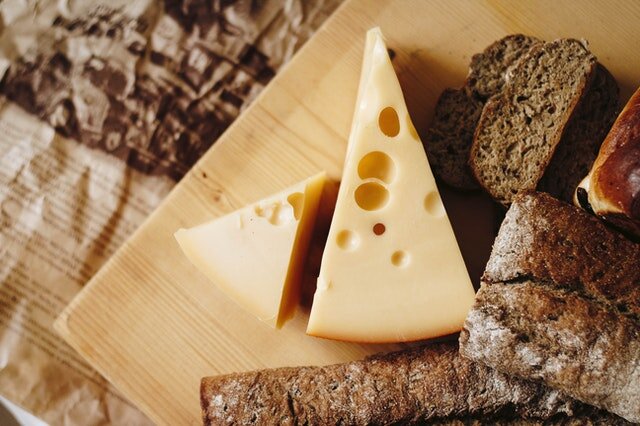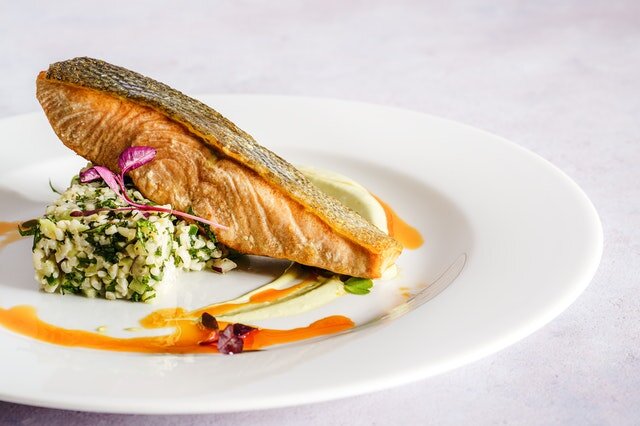Importance of Vitamins and Minerals For Athletes
Jan 04, 2021
Quick turbo, shower, piling the kids into the car, and just about remembering to grab something on the way out the door ?! Sound familiar?!
It might be with your tightly packed schedule each day that you just about manage to hold it together with remembering protein in a post-training snack or meal which just happens to have some carbohydrates and probably has some suggestion of green to it!
But do you ever consider the smaller micronutrients and whether you are meeting your needs as an athlete? I would imagine that with the suggestion of a micronutrient that you think iron but what about zinc, selenium, calcium, Vitamin D, and B12 to mention but a few?!
As exercise causes many changes to metabolic pathways we may have increased requirements for some micronutrients. Athletes who restrict energy intake, under fuel, or who avoid certain groups of foods may be at higher risk of deficiencies.
For starters lets start with the big guns:

Iron - There are several reasons why athletes are interested in iron; primarily because often athletes can have lower iron levels than non-athletes and it directly affects performance with effects on muscle function and work capacity. Iron is a key part of haemoglobin which is the protein present in red blood cells. This is the transporter for oxygen from your lungs to your muscles; so pretty important! It is important that we think about when and how to include iron-rich foods into the diet; which is often low due to inflammation after exercise, higher losses, and absorption rates.
How much do we need? 18mg/ day for females and 8mg/day for men
To help avoid deficiencies choose foods where iron is well absorbed such as haem iron (from animal sources) present in red meat, eggs, and dark meat in white meat or non-haem iron (plant-based ) + a source of vitamin C such as pulses with a glass of orange juice.
For example, 100g of beef ( a small portion of meat) = 3.6mg iron
2 medium eggs = 2.2mg
½ can of baked bean = 2.8mg
Unfortunately, some foods and drinks such as tea interfere with absorption so timing and planning of iron in the day-to-day diet; plus periodisation around training schedules and racing is crucial too!
We all know calcium for its role in bone repair, remodeling, and growth. It is also involved in nerve conduction, muscle, and blood clotting; so pretty essential!

Calcium - Athletes following more plant-based or restrictive diets often have lower intakes of calcium in their diet with the avoidance or reduction in intake of dairy products.
A potent combination of low energy intake, altered menstrual function in females, and low calcium and vitamin D intake is a recipe for stress fractures, halting training, and racing.
How much: 1500mg a day to optimise bone health especially in athletes with low energy intake
For example:
200ml milk = 240mg calcium
125g pot yoghurt = 200mg
½ tin of sardine = 258mg
A matchbox size piece of cheese (30-40g) = 220mg
200ml plant milks- fortified = 200mg
1 orange = 75mg
125g pot soya yoghurt- fortified = 150mg
Unfortunately, products that are fortified with calcium may not be fully absorbed in the way in which dairy-based calcium is.

Vitamin D -A hot topic in the world of Covid 19 and sport right now! Vitamin D has a role to play in many functions within the body including immune function, effects, and interplay with calcium and phosphorus. It may also play a role in reducing inflammation, injury prevention, and decreasing the risk of stress fractures.
How much: recommended to supplement 1000IU autumn to spring to maintain sufficiency
Unfortunately, we can’t get much from the food itself as our main source of vitamin D is from sun exposure.
Food sources include:
Oily fish such as salmon, sardines, pilchards, and trout are good sources
Egg yolks milk and meat small amounts (levels vary within seasons)
Look out for products fortified with vitamin D such as some kinds of milk, yoghurts, margarines, and cereals

What about antioxidants?
A diet that is well balanced should contain all the antioxidants that an athlete requires. More certainly is better; so as athletes we shouldn’t need to take high doses of antioxidants; and it has been suggested that high doses do not enhance athletic performance (1).
They help to protect cell membranes from oxidative damage; as we know training itself causes increased oxidative stress. So it makes sense that our diets should contain plenty of colour and different proteins proving rich sources of antioxidants.
Antioxidants include the vitamins C and E such as oranges and kiwi and oil-rich avocados and nuts. Antioxidant-rich foods such as berries and aubergine from the anthocyanin group; seafood rich in copper and Zinc and the bright colours from the beta-carotene group with pumpkin, mango, and carrots.
Simply put; think about a variety of proteins, good quality fats, regular sources of dairy, and plenty of colour to each meal and snack! It sounds very simple, but it really can be with a little pre-planning and thought!
